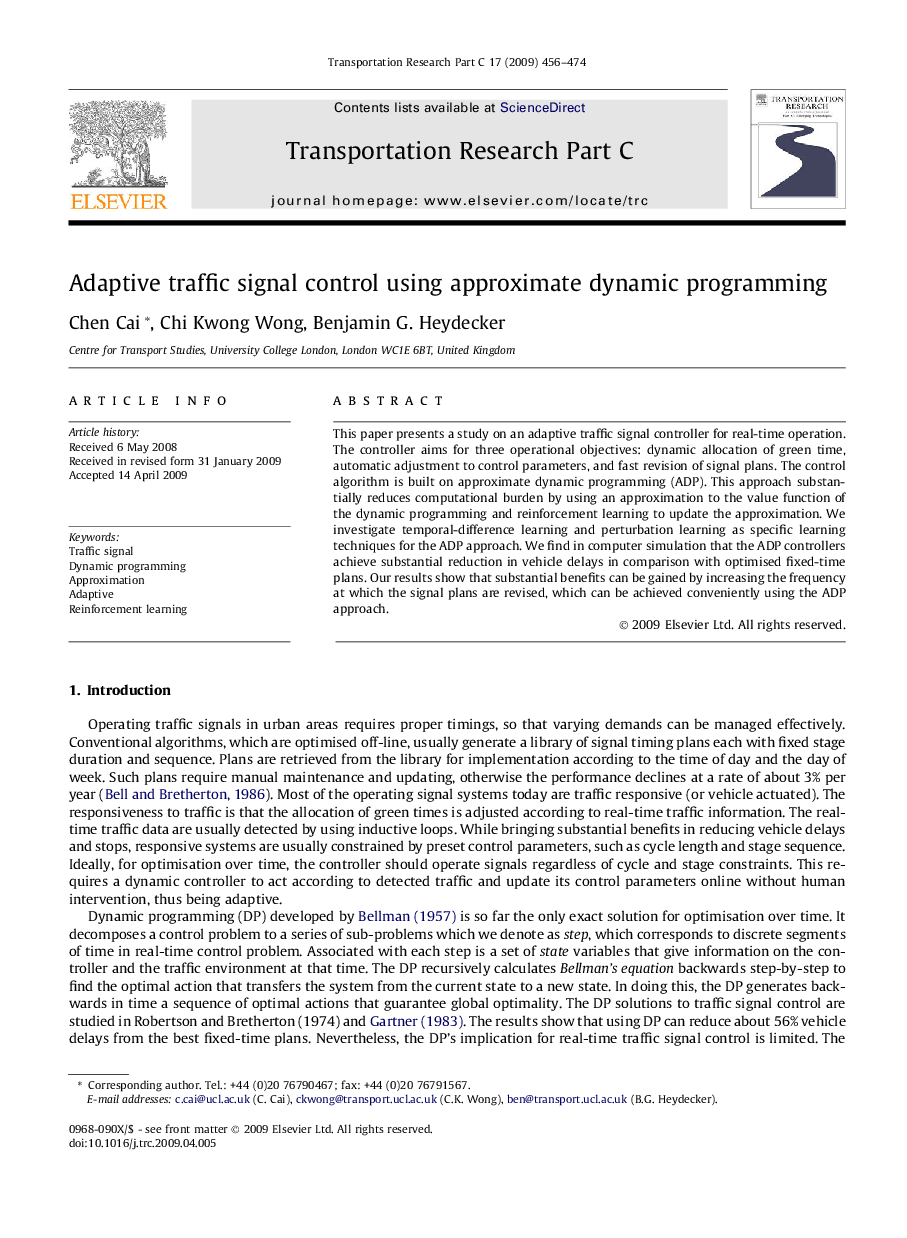| Article ID | Journal | Published Year | Pages | File Type |
|---|---|---|---|---|
| 526649 | Transportation Research Part C: Emerging Technologies | 2009 | 19 Pages |
This paper presents a study on an adaptive traffic signal controller for real-time operation. The controller aims for three operational objectives: dynamic allocation of green time, automatic adjustment to control parameters, and fast revision of signal plans. The control algorithm is built on approximate dynamic programming (ADP). This approach substantially reduces computational burden by using an approximation to the value function of the dynamic programming and reinforcement learning to update the approximation. We investigate temporal-difference learning and perturbation learning as specific learning techniques for the ADP approach. We find in computer simulation that the ADP controllers achieve substantial reduction in vehicle delays in comparison with optimised fixed-time plans. Our results show that substantial benefits can be gained by increasing the frequency at which the signal plans are revised, which can be achieved conveniently using the ADP approach.
